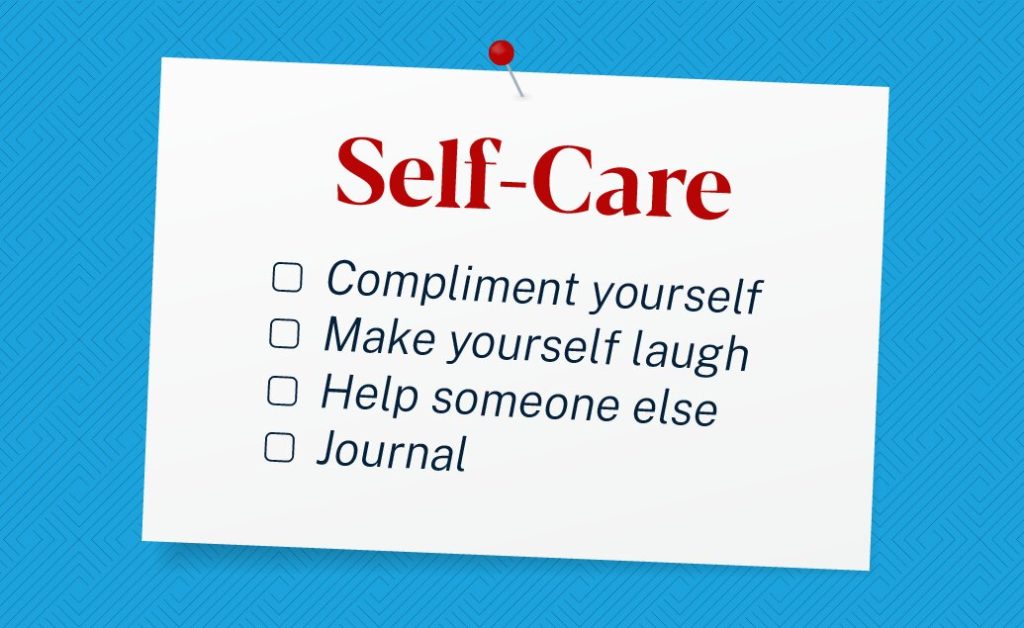
Self-care is a popular topic of discussion among teachers, where stress and burnout can take a heavy toll if personal needs are constantly shunted to the side in favor of work priorities. What educators often overlook, however, is that students also face stress on a daily basis. They also have a lot to juggle: studying to maintain a decent grade point average, playing competitive sports, participating in extracurriculars, dealing with social pressures and fulfilling personal responsibilities.
With all that going on, students could use some self-care, too. But they may not know that or understand what self-care looks like. That’s where teachers can step in.
Each day, I remind my students why they need to take care of themselves and how doing so is a key to being happy and focused. After all, unhappy students do not do well in school or maintain healthy professional or personal relationships. On my classroom wall, I display an anchor chart of small things they can do every day to take care of themselves. Here are some of the things on that list:
Compliment yourself. Encourage students to look in the mirror and say something positive. Their statements can be about traits like, “You are beautiful” and “You are funny.” They can also be more general, such as, “You are needed today” or “You are worthy of love and happiness.” Just saying these words can help boost a student’s self-esteem.
Do or say something to make yourself laugh. Research has shown there are many benefits to laughing. It reduces stress and can relieve pain. Plus, it naturally makes you feel happy because it releases feel-good endorphins.
Encourage or help someone else. Helping someone in need gives you a sense of self-worth and the help or encouragement given doesn’t have to be monumental for it to feel good. Make someone laugh. Help someone complete a task. Give some sound advice. Explain to students the positive impact these seemingly small actions can have and provide some examples from your own life to give them ideas of what they can do.
Make a goal and work towards keeping it. Creating goals give students a sense of purpose and achieving a goal instills a tremendous sense of accomplishment. Help students strategize reasonable and productive goals, then help them create a plan to help them achieve them. Be sure to include a celebration once their goal is reached. Then it’s time for them to repeat the process with a new goal.
Utilize one of your talents. Remind students that all of them are gifted with multiple talents and unique skills. Taking time to do something they’re good at can help them feel confident and fulfilled. Help students who might not know what they are good at figure it out by distributing student interest surveys.
Spend time with someone you enjoy. Sharing moments with family, friends or classmates with common interests can fill a person’s bucket. It imparts a sense of belonging and importance. Everyone enjoys sharing time and space with others who want them to be there.
Journal. Writing can be therapeutic. Have students jot down their feelings, goals, regrets or concerns. Tell them this is something they can turn to especially when they don’t feel like talking to anyone or when they need to have a serious conversation and need a place to rehearse it.
If students aren’t focusing on their well-being, their stress can cause them to burn out. Even smart, put-together students can fall apart. As part of educating the whole child, educators should teach students ways to make time for themselves, relax and do things that make them happy.
Help your students be the best they can be by being the best educator you can be. Explore American College of Education’s fully online education programs.

